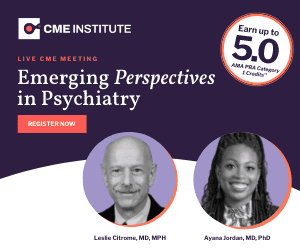Clock-watching insomniacs are more likely to pop a pill, a new The Primary Care Companion for CNS Disorders study finds. Frustration over time ticking by created a vicious cycle of sleeplessness, frustration, and medication use, the data showed.
Time Goes ByResearchers from the Sleep and Human Health Institute in Georgia led the study involving 4,886 patients who sought treatment at a sleep center over a 10-year period. Subjects – 45 percent of whom were female and with an average age just over 50 – completed surveys to assess the severity of their insomnia symptoms. They were also questioned about their tendency to monitor time and how often they relied on a sleeping aid to help nod off.
Participants reported an average Insomnia Severity Index (ISI) score of 14.77, indicating the severity of their insomnia symptoms. They also recorded an average Time Monitoring Behavior-10 (TMB-10) score of 11.73, which assessed their tendency to constantly check on time passing. Nearly 38 percent used some kind of sleeping medication at least once a week. Over 26 percent relied a weekly prescription sleep medication.
TMB-10 scores for medication users were approximately 34 percent higher than non-users. Similarly, participants who regularly used prescription sleep medication had nearly 29 percent higher TMB-10 scores.
Having a comorbid psychiatric diagnosis also increased the likelihood of taking a sleep aid on a regular basis. Among participants with insomnia, 53 percent of those with a psychiatric diagnosis used prescription sleep medication regularly. Only 30 percent of those without another diagnosis did so. Further, the relationship between TMB and sleep med use was stronger when mediated by insomnia symptoms, particularly for prescription medication.
Overall, these findings suggest that individuals who feel annoyed when monitoring time during an episode of insomnia are more likely to rely on sleep medication, especially prescriptions.
“A standard recommendation is to turn around the clock or remove it from the bedroom to reduce TMB,” the authors wrote. “Notwithstanding, the present results suggest the behavior itself is not the sole driver of medication use; rather, frustration is at least as important, if not more so.”
These results highlight the importance of understanding what makes people with insomnia tick, so to speak. Strategies that address their frustrations could go a long way to reducing their reliance on sleep medications, the authors said.
IN OTHER PSYCHIATRY AND NEUROLOGY NEWS THIS WEEK
Research participants offer unique insight into suicide safety protocols. This could help refine study design and improve the tools currently in use for patients with depression. Remission rates at six months for young people with depression confirm that condition severity at treatment initiation and over time is a strong predictor of remission status. Follow the case of a 22-year-old man with depressive disorder who developed drug-induced itch while taking clonazepam. A new data driven substance use screening instrument holds promise for improving identification of substance use in seriously mentally ill patients. The new Beyond Measure report by Everytown Research & Policy surveyed more than 100 gun violence survivors to learn more about the toll gun violence epidemic is taking on victims, families and communities. This year’s British Mental Health Awareness Week focused on managing anxiety. According to the social media monitoring tool Brandwatch, more than 6,100 Tweeters shared their best coping mechanisms using the hashtag, ##ToHelpMyAnxiety. It’s not too late to add your voice to the conversation.Anxiety and panic attacks can make you feel lonely and terrified. Millions of people are feeling the same way, please know that you are not alone. This poem was inspired by the words of Perrie Edwards.#MentalHealthAwarenessWeek #PerrieEdwards #LittleMix #ToHelpMyAnxiety pic.twitter.com/7TqGOJGugu
— All On The Board (@allontheboard) May 15, 2023
NEW AT CME INSTITUTE
Click to earn free accredited CME credit.


留言 (0)